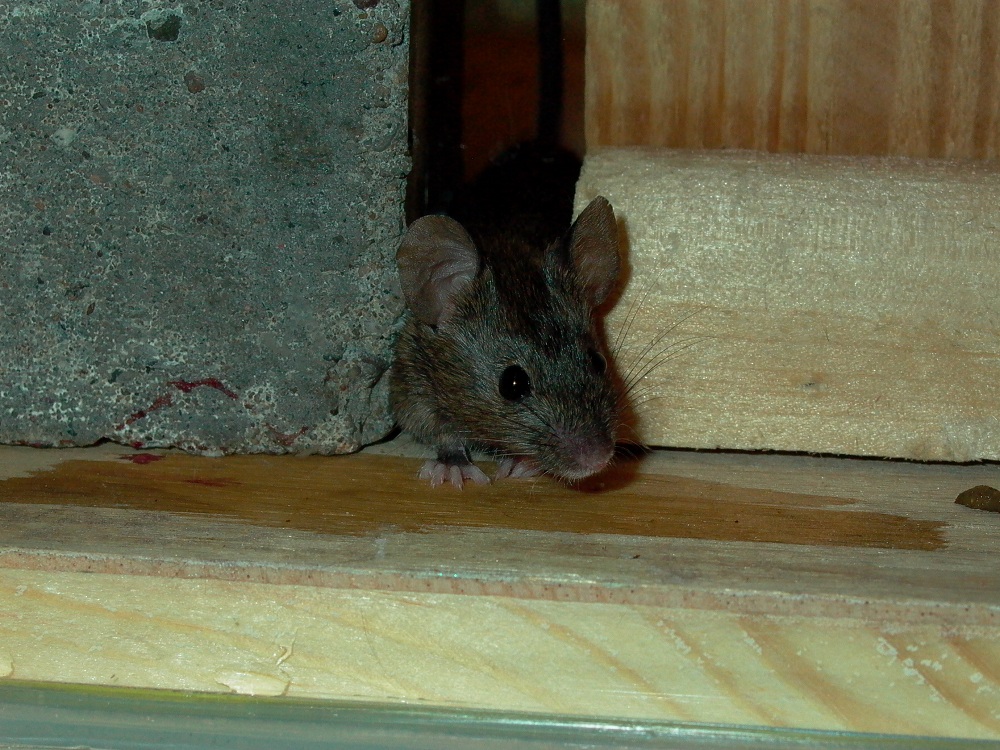Freaky Mutant Mouse Steals Genes to Resist Poison

Get the world’s most fascinating discoveries delivered straight to your inbox.
You are now subscribed
Your newsletter sign-up was successful
Want to add more newsletters?

Delivered Daily
Daily Newsletter
Sign up for the latest discoveries, groundbreaking research and fascinating breakthroughs that impact you and the wider world direct to your inbox.

Once a week
Life's Little Mysteries
Feed your curiosity with an exclusive mystery every week, solved with science and delivered direct to your inbox before it's seen anywhere else.

Once a week
How It Works
Sign up to our free science & technology newsletter for your weekly fix of fascinating articles, quick quizzes, amazing images, and more

Delivered daily
Space.com Newsletter
Breaking space news, the latest updates on rocket launches, skywatching events and more!

Once a month
Watch This Space
Sign up to our monthly entertainment newsletter to keep up with all our coverage of the latest sci-fi and space movies, tv shows, games and books.

Once a week
Night Sky This Week
Discover this week's must-see night sky events, moon phases, and stunning astrophotos. Sign up for our skywatching newsletter and explore the universe with us!
Join the club
Get full access to premium articles, exclusive features and a growing list of member rewards.
Poison-resistant mice have been giving homeowners throughout Germany and Spain increased trouble in recent years. New research indicates that some of these mutant mice developed their immunity in a surprising way: by stealing it from another species.
Poison resistance usually evolves as a result of changes to one letter, or chemical base, of the genetic code. In contrast, these freak mice, a mutant form of the European house mouse, inherited a whole chunk of genes from Algerian mice, a species they shouldn’t have been able to breed with. And the process is still continuing. [Real or Fake? 8 Bizarre Hybrid Animals]
"For animals, we did not know that there seems to be another pathway how you can evolve, by adopting a gene from another species and incorporating it into your own DNA," said study researcher Michael Kohn of Rice University. "In microbes it's quite well understood"— in plants, too — "but I don't think anyone could have thought this type of thing could happen in animals."
Surviving poisoning
By sequencing the genes of the two species of mice, and the resistant strains of the European house mouse, the researchers discovered that two different types of mutation provide the same resistance.
Both types of genetic changes make the mice resistant to a type of poison that thins their blood by incapacitating a protein called vkorc1. This protein normally leads to the activation of vitamin K, enabling blood clotting, but it doesn't when the poison is present. With the mutation, though, vkorc1 can escape the poison's incapacitating effects.
The researchers discovered that the vkorc1 gene from some of the European house mice was more similar to that of the Algerian mice than to the other resistant European strain or even to normal, non-resistant European mice.
Get the world’s most fascinating discoveries delivered straight to your inbox.
The researchers think the Algerian mice developed this mutation because of their vitamin K-deficient diet, though they aren't sure how. It entered the European house mouse population when the two species mated several generations ago. The two species are evolutionarily separated by over 1.5 million years, so most hybrids of the two species don't survive or can't produce offspring.
"They are a little bit further apart than humans and chimps. That's not a trivial amount in terms of breeding," Kohn said. Even these European mice with only a chunk of Algerian genes seem not to breed as well as normal house mice in the lab.
In the wild, though, they breed well enough.
Gene sharing
The two species have very different attitudes. The European mouse is aggressive and prefers to live inside houses, while the meeker Algerian mouse lives outside. They never came into contact until humans brought them together. Then they probably met somewhere in Spain or North Africa, where their ranges overlapped.
By looking at how much this chunk of genome has changed since the two species hybridized, the researchers determined that this stolen gene entered the European mouse's repertoire sometime after the poison was introduced 50 years ago.
Hybridization "has probably occurred occasionally since humans have brought them into contact … more often than we thought," Kohn said. "The gene has been adapted very recently, less than 20 years ago. The process is still in operation very recently and still ongoing in other places."
Kohn warns this could start happening more and more frequently, as related species come into close contact due to human interference or environmental change. For example, there is a hybridization of grizzly bears and polar bears in Alaska as their home habitats change with changing climate.
You can follow LiveScience staff writer Jennifer Welsh on Twitter @microbelover. Follow LiveScience for the latest in science news and discoveries on Twitter @livescience and on Facebook.
Jennifer Welsh is a Connecticut-based science writer and editor and a regular contributor to Live Science. She also has several years of bench work in cancer research and anti-viral drug discovery under her belt. She has previously written for Science News, VerywellHealth, The Scientist, Discover Magazine, WIRED Science, and Business Insider.
 Live Science Plus
Live Science Plus











